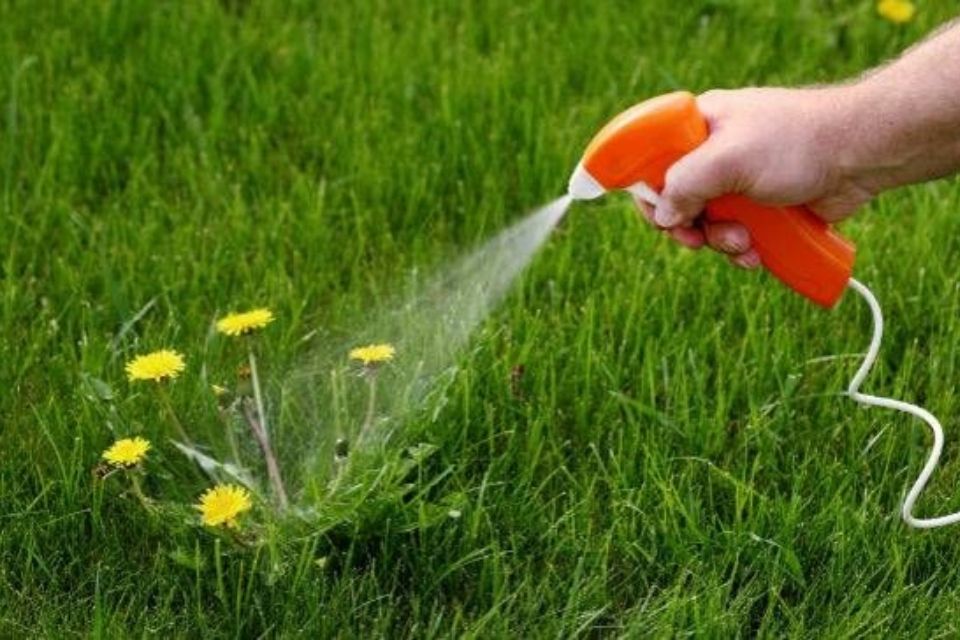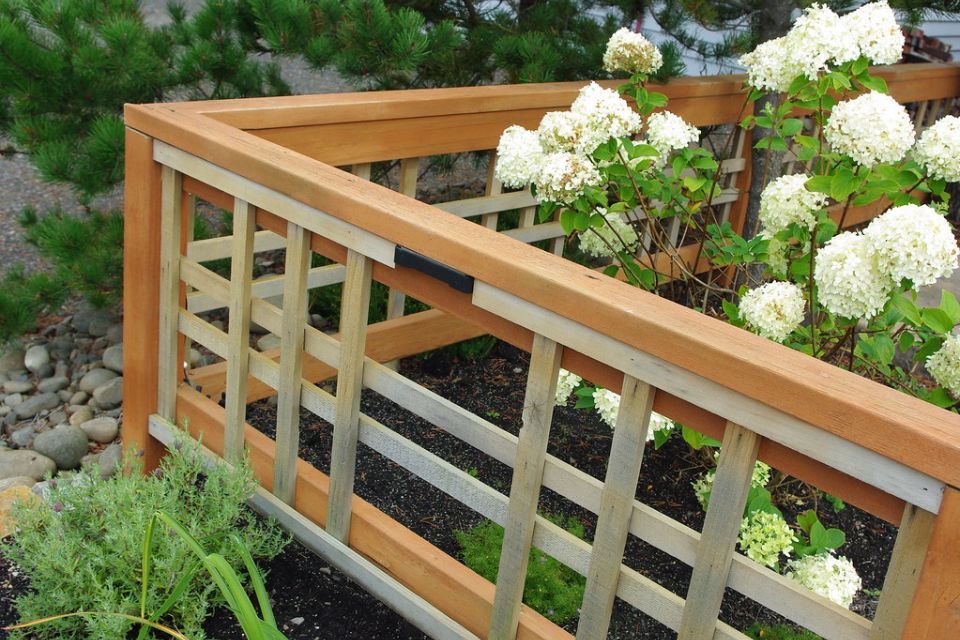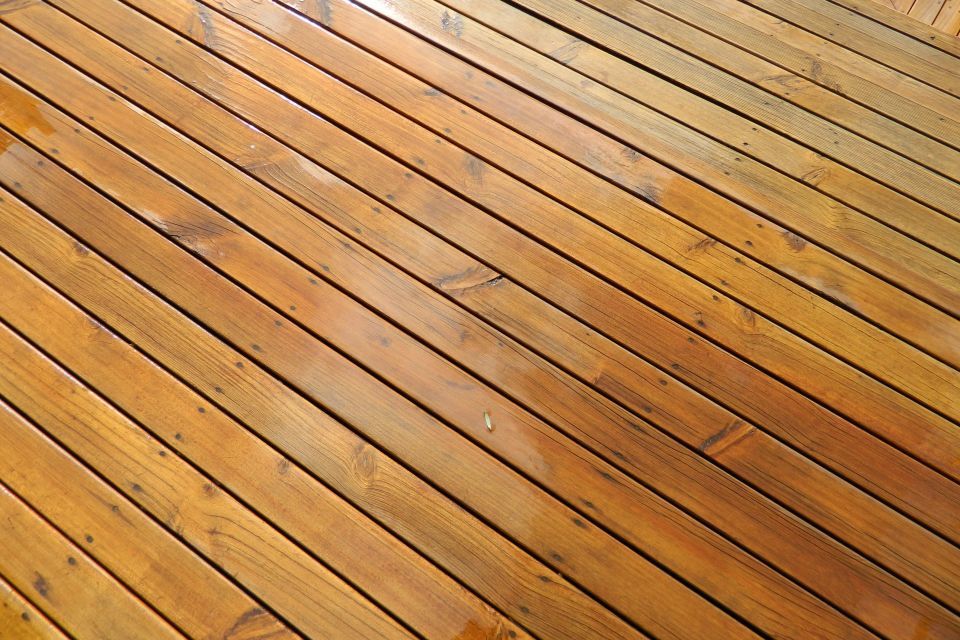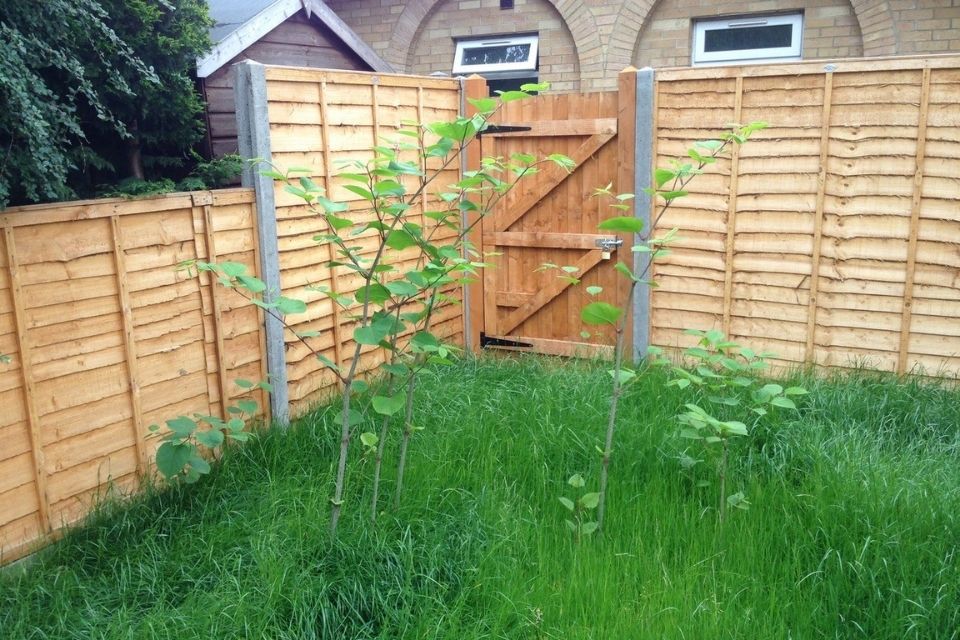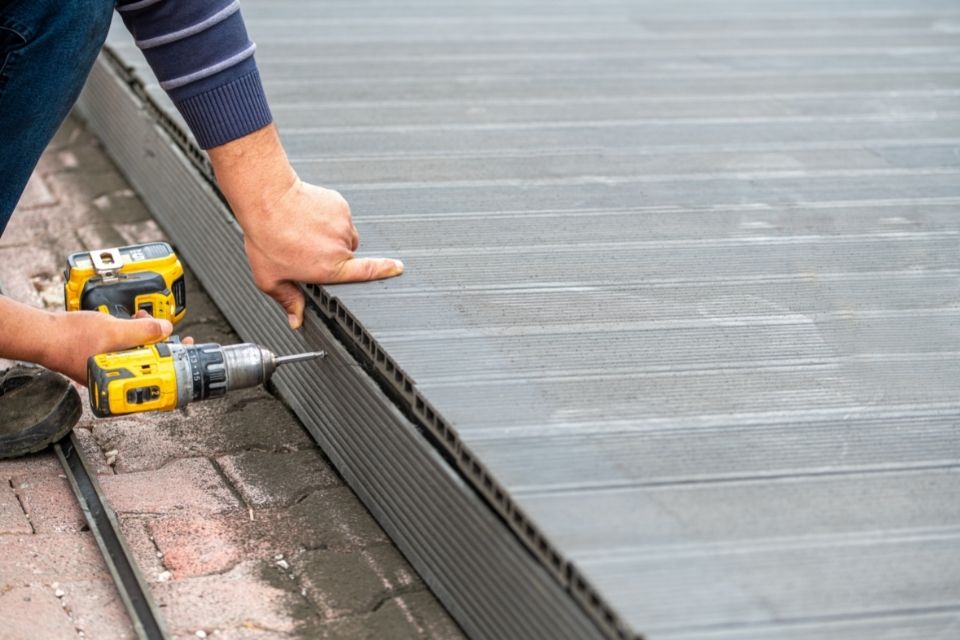What Is Weed Killer?
Weeds can crop up at any time, and they are rather opportunistic as they tend to thrive in specific temperatures.
Some weeds can grow in cracks, and they can find themselves in driveways and paving stones, pretty much anywhere where there is room to grow, they will find a way into it.
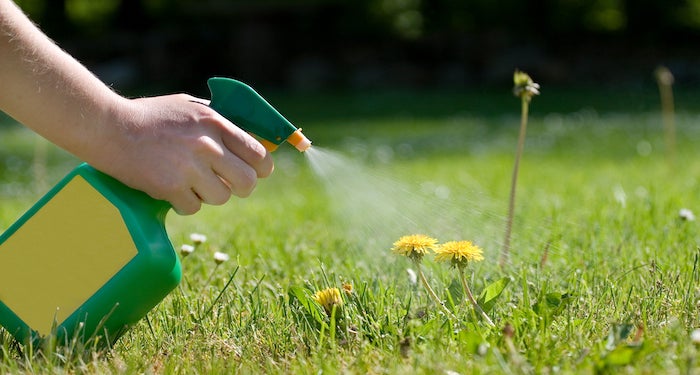
This is where weed killer comes in. Weed killer is available as a liquid which uses a spray bottle and a granular product.
Weed killers come in different types, which we will go into a little later. At some point, anybody with a lawn will need to use weed killers. In fact, anybody with a house will need to at some point as the weeds do not just lend themselves to grass, as mentioned before.
How Do You Use Weed Killer?
So now we know what weeds are, how to destroy them and keep your garden pristine. The first step is making sure you pick the right one.
There are a few questions you need to ask yourself, like - where are the weeds? What type of weeds are they? (Annual- Each year, Biennial Weeds- a two-year life cycle, Perennial weeds- these weeds grow for multiple seasons).
How severe are the weeds? How much can you afford to spend on weed killers?
We will break down how to determine the best for you. Once you have chosen your weed killer, we need to know how to use it, so we would suggest at this point to wear protective clothing as you don't really want weed killer on your hands or face.
A spray bottle will come with a pressure pump. You will need to pump the canister for a number of pumps which will fill the canister with air, meaning you will get a more powerful spray.
Next, you will press the spray button on the spray handle directly on the weed's root. Be careful not to put too much weed killer on the weed as you do not want to kill everything else around it.
You will leave that to do its work and then continue to spray the weed depending on the severity of the weed, one application may be enough.
To use the granular version, you will need to understand that you have less control over the effectiveness. When using the granular version, you will need to apply this when the grass is damp to give it the ability to soak into the turf.
Avoid laying the granular weed killer when there is a mowing cycle due. Try to avoid the treatment for at least two days and make sure you stay off the lawn for one day.
Weeds absorb the chemical, and they transport that to the rest of the plant, which means weed killer is a contact killer.
Types of Lawn Weed Killer
We now know how we use the weed killer, but what weed killer do you need? Let's look at the different types.
Contact Weed Killer
Contact weed killers are, by design, very effective. Once the contact weed killer touches the weed, it starts to work almost immediately.
The chemicals, also known as herbicides, start to be ingested by the tiny openings (stomata) in the plant's leaf. Clearly, the effectiveness is a positive; however, it isn't as effective on every type of weed.
This weed killer only works when the plant is actively growing and during the photosynthesis stage during the day.
This also limits you to killing the weed during the growing season and early in the day, giving the weed killer the whole day to work.
This type of killer is used by homeowners, mainly due to the fact it does not damage the soil for the rest of the garden. The time it takes to destroy the weed can take up to two weeks.
Systemic Weed Killers
Much like the contact weed killers, this type of weed killer works its way through the plant's system to kill all parts completely.
This essentially poisons the plant through one area and then spreads to the rest of the plant, eventually finding its way to the roots, killing the plant entirely.
This does have its pros and cons; the pros are basically how effective the weed killer is. This does exactly what it needs to.
The issue arises when we factor in how specific the weed killer needs to be applied; this can be quite restrictive if you spot the weed at a time when this would not work.
Residual Weed Killers
Residual weed killers need to be carefully looked at when deciding on weed killers because residual weed killers are also known as soil acting weed killers.
Basically, this means that the herbicide will poison the surrounding soil which the target plant is planted into, this means that the plant is inactive.
Most weed killers will be in the soil for months, stopping anything from growing, except for algae and lichens.
This weed killer is best used on hard areas such as patios, driveways and paths, mainly places where you will not want to grow plants in the future, as this will stop any plants from properly growing.
This certainly has its advantages. Again it does what it needs to but can be damaging to future growth in that area.
Non-Selective Weed Killers
This weed killer is the ultimate 'kill everything in sight' weed killer. If there is a plant there, weed or not, it will be destroyed.
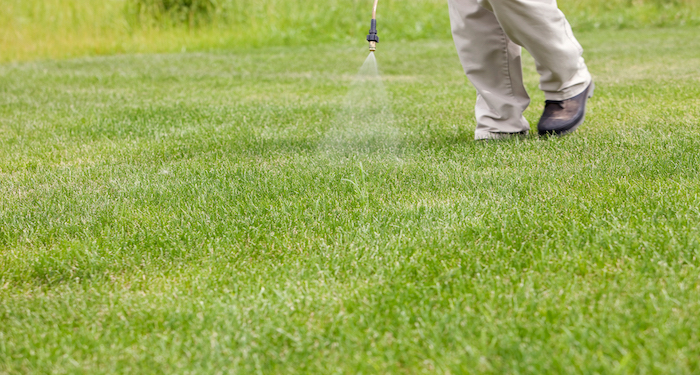
So be mindful where you apply this type of treatment, as you could be destroying your prize petunias if you're not careful.
The main positive of this is that this weed killer will kill the weeds, it is very effective. The negative seems fairly obvious, and you need to be very careful, as even a gust of wind could ruin your favourite rose bush.
Selective Weed Killers
This is less dangerous, as it targets one type of plant, leaving everything else unharmed. Other weed killers will have a broad range of what it will kill, such as buttercups, dandelion and daisy while it leaves grass alone.
This herbicide works even more direct, as it is made purely to kill one type of plant. This is great for using freely over areas with other flowers and plants you'd like to preserve.
The issues only arise when you factor in that you need to understand the plant you are trying to kill. If you aren't too educated in lawn care or gardening, you may mistake one plant for another and end up wasting money on a herbicide that is essentially useless.
Pre-Emergent Weed Killer
Pre-Emergent weed killers are the gardens answer to a car service. This weed killer is an annual effort to keep the weeds at bay.
This weed killer is there to essentially kill an issue before it becomes one. The weed killer will go to work on the infant root systems to stop the issue before it sprouts into an adult weed. You will never see the weeds as the process happens below the soil level.
You will need to factor in the timing and weather and the types of weeds that are going to be a problem before finalizing the exact formula that is needed.
The positives are very simple, prevent a problem before you have to fix a problem. This is an easy way to keep on top of your lawn and is particularly good if you make it a part of your annual schedule.
The negatives come when you realize that not everyone is a lawn connoisseur and would know what formula to use or how to use it.
Post-Emergent Weed Killer
Post-emergent weed killers are used when the weeds have sprouted, and the infant root has blossomed into a big, green, messy weed that now needs attention.
This is where the post-emergent weed killer comes in, and if used correctly, can control the existing weed and help control weeds from cropping back up later on.
Post-emergent weed killers can attack either the foliage or find itself flowing through the plant's system. This is very effective for areas that have become overgrown; it will kill the weed with great effect.
Conversely, you do need to be careful when attacking these plants as it is possible to inadvertently spray another plant, that rose bush could be in trouble yet again.
Best Weed Killer for Lawns
In this section, we will look at what products are considered the best for your Lawns. Several aspects will be taken into account, such as price, effectivity, ease of use and accessibility.
We will also be looking at reviews from customers who have used the products to establish the quality of each weed killer.
Resolva Ready to Use Weed Killer
This weed killer looks to kill the root and not the soil, so that means no nasty herbicide residue left behind, and it's biodegradable, which is fantastic for the environment.
A customer has described this weed killer as 'magic', as they had had issues with dandelions for a while. They had tried home remedies as well as some other brands, but all with no resolution.
The customer did note that they had issues removing tall and skinny weeds, most likely due to the product being a selective weed killer.
Roundup Path Weedkiller
This contact/non-selective weed killer is used mainly for paths and patios and it's slightly more expensive than other brands.
This product was specifically designed to tackle the weeds that creep up through your path, patios and driveways. You spray the solution on the affected area and let the chemicals go to work.
After applying this treatment, the weeds should be out of your hair in one to two days. A customer who has purchased this has said that this ‘100% did the job' and within 24 hours as well.
The customer has confirmed that since this treatment several weeks back that there is no sign of the weeds returning.
Neudorff WeedFree Plus
The cheapest option on the list so far is this contact/non-selective weed killer. This weed killer goes to work on foliage and makes its way to the roots. This weed killer will destroy most weeds and grasses.
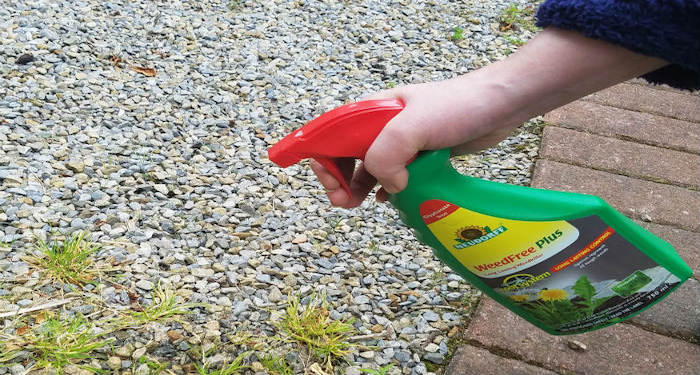
This weed killer is very strong on some weeds that other weed killers struggle such as horsetail and ground elder, where it seems to excel and work better than most. This is great if you have a weed problem and want everything in that area eliminated.
Previous customers really seem to enjoy this product, especially its efficiency and speed.
Evergreen Complete Lawn Food
This weed killer doubles as a treatment for the lawn. This weed killer is an all-round selective weed killer/lawn care combo.
Evergreen makes sure that no stone is left unturned when it comes to keeping the lawn you love pristine.
The main difference is that this is a granular weed killer that is sprinkled over the lawn by hand rather than a liquid which is usually sprayed.
There is a spreader tool available as an additional cost, which is recommended in order to apply the correct amount.
Weedol Lawn Weedkiller
This is a selective/contact weed killer, which means you don't need to be perfectly accurate in order to kill the weed.
Weedol mentions dandelions, daisies, and clover's as their main target. So if this is something that you have an issue with, then this is the product for you.
Best Weed Killer for Block Paving
The block paving, when weed-free, can look very elegant, so to get rid of unruly weeds, the best weed killer for block paving would be a residual weed killer as this kills all plants and soil when it touches it.
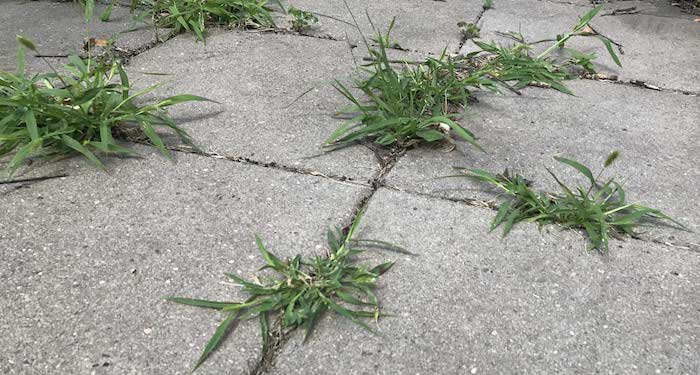
When using residual weed killer, it stops future growth, at least for the near future, which is exactly what you need to keep the block paving free of weeds.
Best Weed Killer for Patios
Keeping the patio clear of weeds is something we all want to do, so the best way to stay on top of this is a non-selective weed killer as it will make sure that any of those pesky weeds don't outstay their welcome.
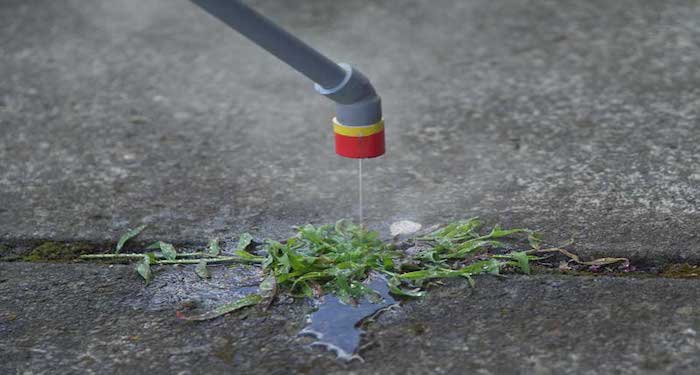
Just make sure that you are careful around areas that you need to maintain, like your lawns and decorative flowerbeds.
Best Weed Killer for Driveways
Driveways take some wear and tear with the cars parking on there daily. The last thing we need is the weeds getting involved. The best way to keep them at bay will be the non-selective weed killer.
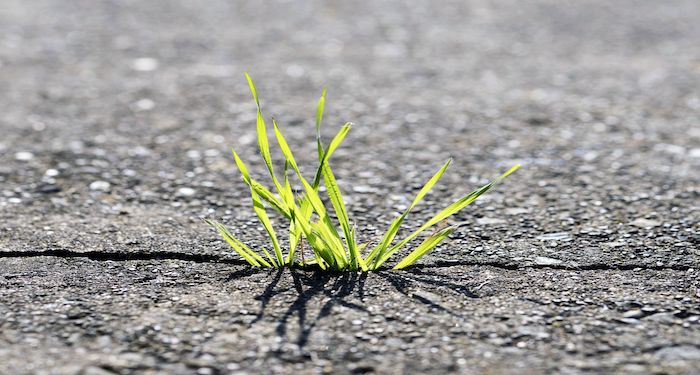
This again will make sure no weeds grow through the driveway and, for the future, will have a very hard time making its way back through the driveway. Just spray it where you need it, and the weeds will be gone before you know it.
Sources
- https://www.gertens.com/learn/lawn-care/weed-killer-application.htm
- https://www.fairwaygreeninc.com/why-weeds-grow-how-control-them
- https://www.taylor-weed-control.co.uk/news/post/types-of-weed-killer
- https://www.gardeningknowhow.com/plant-problems/weeds/pre-emergent-herbicides.htm
- https://www.gardeningknowhow.com/plant-problems/weeds/post-emergent-herbicides.htm
- https://www.expertreviews.co.uk/home-appliances/1407058/best-weed-killer
- https://www.lovethegarden.com/uk-en/article/weeds-paths-and-patios

